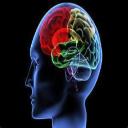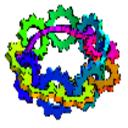Yahoo Answers is shutting down on May 4th, 2021 (Eastern Time) and the Yahoo Answers website is now in read-only mode. There will be no changes to other Yahoo properties or services, or your Yahoo account. You can find more information about the Yahoo Answers shutdown and how to download your data on this help page.
Trending News
OF ALL THE BRILLIANT SCIENTISTS OF THE WORLD THAT BELIEVE IN GOD, WHICH PARTICULAR AREA IN SCIENCE DO U THINK.?
...do you think is home to most of these scientists?
9 Answers
- 8 years agoFavorite Answer
Physics and Mathematics primarily, today.
The vast majority of science in the Western world was discovered by Christian scientists however, who studied all forms of science.
Newton wrote dissertations on Revelation, and he was actually really insightful, as an example of someone who was all over the map spiritually and scientifically.
- NousLv 78 years ago
None!
Very few scientists believe in god and those that do appear to be all on the outskirts!
Only 7 percent of members of the American National Academy of Sciences believed in God. Whilst only 3.3 percent believed in God in the UK’s Royal Society.
Several Gallup poll studies of the general population have shown that those with higher IQ’s tend not to believe in God."
- Anonymous8 years ago
Engineers have a high theist percentage, but they're not actually scientists. Over 90% of physicists and biologists are atheists... I couldn't find numbers for other fields
- CRRLv 78 years ago
They appear to be spread over a wide range of sciences. Check a typical list here. http://creation.com/qa#creation_scientists
Source(s): CR YEC - Anonymous8 years ago
I'd be more interested in what PARTICULAR God these scientists believe in....methinks t'is not Jesus.
- Anonymous8 years ago
Any particular God that you are referring to?
- ANDRE LLv 78 years ago
Sir — The question of religious belief among US scientists has been debated since early in the century. Our latest survey finds that, among the top natural scientists, disbelief is greater than ever — almost total.
Research on this topic began with the eminent US psychologist James H. Leuba and his landmark survey of 1914. He found that 58% of 1,000 randomly selected US scientists expressed disbelief or doubt in the existence of God, and that this figure rose to near 70% among the 400 "greater" scientists within his sample [1]. Leuba repeated his survey in somewhat different form 20 years later, and found that these percentages had increased to 67 and 85, respectively [2].
In 1996, we repeated Leuba's 1914 survey and reported our results in Nature [3]. We found little change from 1914 for American scientists generally, with 60.7% expressing disbelief or doubt. This year, we closely imitated the second phase of Leuba's 1914 survey to gauge belief among "greater" scientists, and find the rate of belief lower than ever — a mere 7% of respondents.
Leuba attributed the higher level of disbelief and doubt among "greater" scientists to their "superior knowledge, understanding, and experience" [3]. Similarly, Oxford University scientist Peter Atkins commented on our 1996 survey, "You clearly can be a scientist and have religious beliefs. But I don't think you can be a real scientist in the deepest sense of the word because they are such alien categories of knowledge." [4] Such comments led us to repeat the second phase of Leuba's study for an up-to-date comparison of the religious beliefs of "greater" and "lesser" scientists.
Our chosen group of "greater" scientists were members of the National Academy of Sciences (NAS). Our survey found near universal rejection of the transcendent by NAS natural scientists. Disbelief in God and immortality among NAS biological scientists was 65.2% and 69.0%, respectively, and among NAS physical scientists it was 79.0% and 76.3%. Most of the rest were agnostics on both issues, with few believers. We found the highest percentage of belief among NAS mathematicians (14.3% in God, 15.0% in immortality). Biological scientists had the lowest rate of belief (5.5% in God, 7.1% in immortality), with physicists and astronomers slightly higher (7.5% in God, 7.5% in immortality).
Source(s): http://www.i-bmw.com/showthread.php?p=218169






